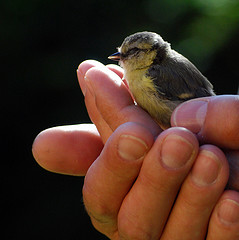When it comes to cross-cultural simulation games, Barnga is an oldie but a goodie.
Barnga was created by Sivasailam “Thiagi” Thiagarajan in 1980, while working for USAID in Gbarnga, Liberia. During a coup, his team’s vehicles were commandeered by the military, so Thiagarajan and his colleagues stayed in their compound, passing the time playing Euchre. Born in Chennai, India, Thiagarajan had moved to Bloomington, Indiana, where he’d learned how to play the card game, and as his Liberian coworkers hadn’t played it before, he gave them a copy of Hoyles Games to read up on the rules. The trouble was, after their crash course, they all came away with different interpretations of how to play. Rather than clear up the arguments, Thiagarajan let the players work it out, and after three hours, the group had settled on their own, unique version of Euchre.
“This interesting episode presented me with a blinding flash of the obvious,” writes Thiagarajan in Barnga: A Simulation Game on Cultural Clashes. “Serious conflicts arise not from major, obvious cultural differences, but from unrecognized, minor ones.”
From this, Thiagarajan developed Barnga, one of 120 simulations and games that he has created during his career.
The concept of Barnga is simple (Spoiler Alert!): players are given rules for a card game called “Five Tricks.” Unknown by the players, though, is that each set of rules is slightly different. When participants begin playing, the results are many and varied: confusion, accusations of cheating, frustration, assertions of authority, feelings of isolation, resignation, competitiveness, formation of alliances, etc.
The instructions for Barnga not only include how-tos for the simulation but also guidelines for directing the follow-up discussion—wherein lies the real meat of the experience. It’s when people discuss how they feel about the game, and about each other, that the shift is made to the realm of cultural interaction.
Barnga works best with about 20 to 40 players, though it is possible with fewer than eight. Instructions—in four languages—are available from several sources, including Thiagarajan’s website, The Thiagi Group, and Amazon, where several pages describing the game are available with the “Look Inside!” feature.
If you’ve played Barnga in the past, it may be worth another look, as the “25th Anniversary Edition” includes the following updates:
- the option of partnership play, which opens up discussion on the effect of moral support
- a subtle trick that reinforces the idea that everyone is using the same rules
- multiple tournament formats, and
- more debriefing prompts
And if Barnga whets your appetite for group activities, take a look at Thiagarajan’s list of over 300 free “training games and activities,” most of which also appeared in the Thiagi GameLetter.
(Sivasailam “Thiagi” Thiagarajan, with Raja Thiagarajan, Barnga: A Simulation Game on Cultural Clashes, Intercultural Press, 2006)
[photo: “Card Games,” by Twaize, used under a Creative Commons license]


 Looking for a game to play with family and friends? Here’s one you might like.
Looking for a game to play with family and friends? Here’s one you might like.